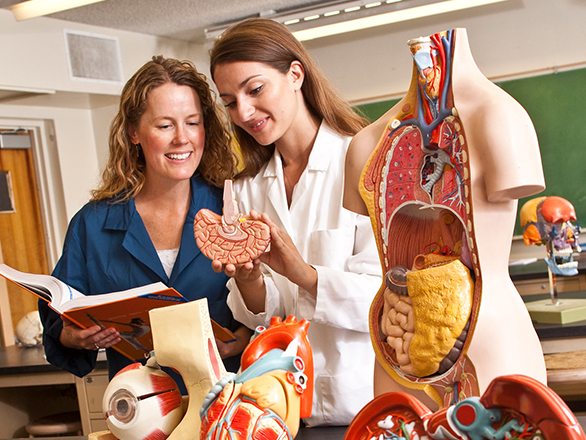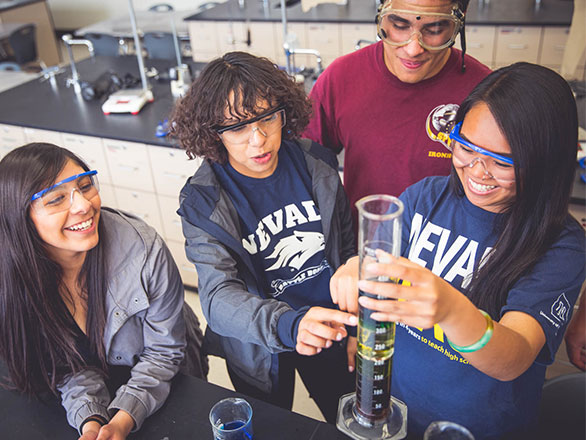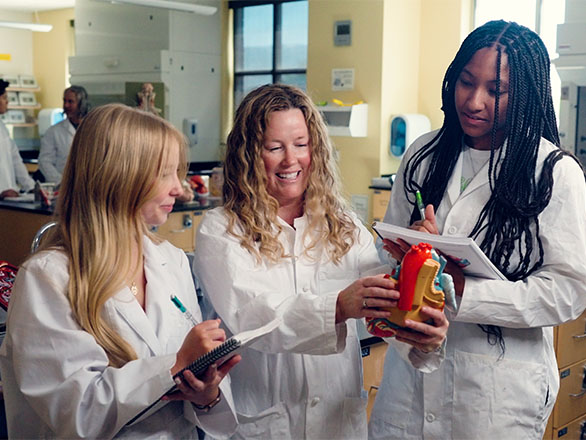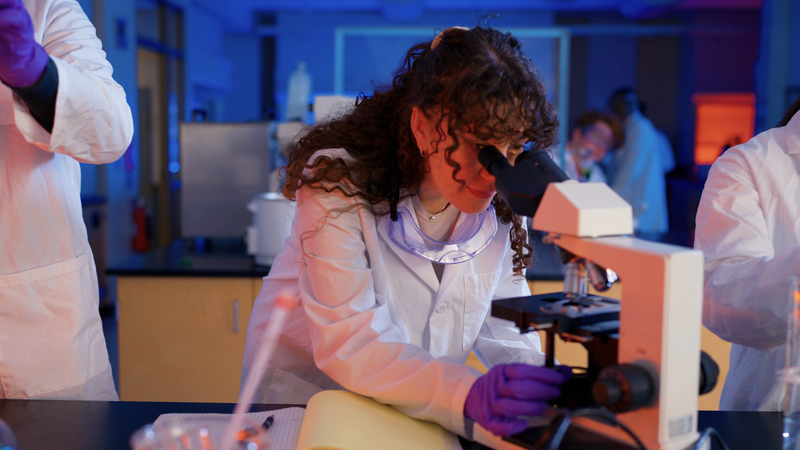What are the “rules of life”… and how can we best preserve the dazzling spectacle of life as we know it? Students who are fascinated by the deep history of life on our planet, or the intricate relationships between plants and pollinators, microbes and humans, predators and prey, viruses and their hosts will appreciate the exceptionally wide array of biology courses to choose from. If you have a favorite group of animals, one of our “-ologies” courses offers the chance to gain deep expertise in its biology and natural history—for example, Mammalogy (mammals), Herpetology (reptiles and amphibians), Ichthyology (fish), Ornithology (birds) and Entomology (insects) are popular lab options, alongside plant biology and biological diversity. Hands-on highlights include volunteering at the University of Nevada, Reno Natural History Museum, participating in the Young Explorers Program to conduct research at international field sites, or learning how to carry out ecological research in the Sierras through Experimental Field Ecology.



